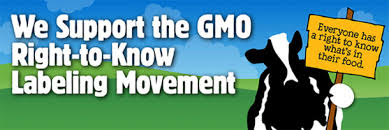
Shedding Light: Vermont's Labeling Law for Genetically Engineered Foods
Vermont leads the United States toward transparency in the food system as it battles food manufacturers that have sued to keep things quiet.
By Vermont Law School Student Jacqueline Sopko and Professor Laura Murphy
In May 2014, Vermont Gov. Peter Shumlin signed into law the first-in-the-nation requirement that food produced with genetic engineering (GE) be labeled as such. The bill, which passed by a vote of 28-2 in the Senate and 114-30 in the House, garnered the support of more than 30,000 Vermonters and a coalition of key advocacy groups. Though the first in the U.S. to require labeling, Vermont joins at least 61 countries around the world that already require labels on GE foods. It also joins neighbors Maine and Connecticut, who last year passed GE labeling laws with "trigger clauses" that delay the laws' effective dates until certain other states take action. Vermont's law has no such trigger or contingency, and requires GE products be labeled by July 1, 2016.
Vermont's law, Act 120, requires labels on foods that have been produced or partially produced from an "organism or organisms in which the genetic material has been changed" through in vitro nucleic acid techniques or other techniques that "overcome natural physiological, reproductive, or recombination barriers." The law also prohibits labeling a product "natural" if it is produced with genetic engineering. The law's purpose is to "reduce and prevent consumer confusion and deception," to "establish a system by which persons may make informed decisions regarding the potential health effects of the foods they purchase and … avoid potential health risks," to "inform the purchasing decisions of consumers who are concerned about the potential environmental effects of the production of food from genetic engineering," and to "provide consumers with data from which they may make informed decisions for religious reasons."
As predicted, several food manufacturer organizations filed suit to stop Vermont's law, claiming that it is unconstitutional. They allege, among other things, that the First Amendment gives them a right to remain silent about whether their food products are produced with GE, and that federal law preempts state efforts to require labels on GE products. Vermont, meanwhile, maintains that Act 120 is valid under the First Amendment because it establishes reasonable requirements to protect the interests of the state and of Vermont consumers, and it does not fall under any of the narrow labeling categories that are actually preempted by federal law. A subset of the groups initially advocating for the law, including the Vermont Public Interest Research Group and the Center for Food Safety, has joined the case as "friends of the court," amici curiae, arguing alongside the state that Vermont's law is constitutional.
In 2015, the United States District Court for the District of Vermont will likely rule on pending motions to dismiss and for injunctive relief, advancing the national conversation as more states take up GE labeling bills and a congressional faction is expected to push federal legislation to block state efforts.
Photo courtesy of http://www.foodnavigator-usa.com/Regulation/CFS-VPIRG-seek-to-help-Vermont-defend-GMO-labeling-law
About the Authors
Jacqueline Sopko is a second-year law student at Vermont Law School. She is a native Wisconsinite and graduated from the University of Wisconsin-La Crosse. She is passionate about environmental and construction law and plans to practice in those areas upon her completion of law school.
Laura Murphy is associate director of the Environmental and Natural Resources Law Clinic and an assistant professor at Vermont Law School. She has been with the clinic since 2007 and currently focuses on a variety of Clean Water Act work and agriculture issues.